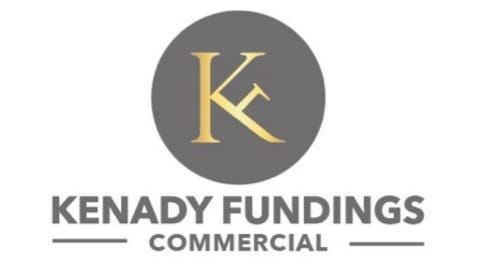How to Qualify for Investment Property Loans in 2025
With housing markets still strong in many areas across the United States, more people are exploring real estate as a long-term wealth-building strategy. Whether you're eyeing single-family rentals, duplexes, or multi-unit apartment buildings, getting approved for investment property loans is one of the most important steps to funding your purchase. In 2025, lenders are looking at a combination of creditworthiness, financial stability, and real estate experience when determining eligibility. Knowing what’s required can improve your approval odds and lead to better financing options.
Understanding the Requirements of Investment Property Loans
Investment property loans are fundamentally different from mortgages for primary residences. Lenders see these loans as riskier, given the possibility of vacancies or inconsistent rental income. Because of this risk, financial institutions set stricter qualification criteria. According to Forbes, traditional lenders like banks or credit unions usually require a substantial down payment—typically 20% of the property's value—and a solid credit score. A score of 740 or higher will typically secure the most competitive rates. Anything below that may still qualify, but it will likely come with higher interest rates and less favorable terms.
In addition to your credit score and down payment, lenders also evaluate your overall debt-to-income ratio, cash reserves, and the projected income potential of the property. You’ll need to demonstrate that you can handle the financial responsibility of owning and maintaining an investment property, even if it goes unrented for some time. Meeting or exceeding these baseline requirements puts you in a stronger position when applying for financing in today’s lending environment.
Building a Strong Credit Profile
One of the most essential steps to qualifying for investment property loans is improving and maintaining a high credit score. A credit score of 740 or above not only improves your chances of approval but also gives you access to more favorable terms, including lower interest rates and fewer upfront costs. To reach this level, you’ll need a history of on-time payments, low credit utilization, and a mix of credit types.
Start by reviewing your credit report and correcting any inaccuracies. Pay off outstanding debts, especially revolving credit accounts like credit cards. Avoid opening new accounts or making large purchases on credit in the months leading up to your application. Lenders want to see that you’ve used credit responsibly over time and that you’re not overextended. These small steps can make a significant difference in the financing options you receive.
Preparing a Significant Down Payment
From our time in the industry, we've concluded that most traditional lenders require a 20% down payment for investment property loans. In some cases, especially for multi-unit properties or borrowers with lower credit scores, the required amount may rise to 25% or even 30%. This is because investment properties carry a greater risk of default than owner-occupied homes. A larger down payment lowers that risk and demonstrates your commitment to the property.
Saving for a sizable down payment takes time and financial planning. Borrowers often liquidate other investments, use equity from existing properties, or take advantage of partnerships to gather the required funds. Some government-backed loans may allow for lower down payments, but they often come with stricter limitations and aren't commonly used for investment properties. Regardless of your funding source, having enough capital upfront is critical for approval and long-term success.
Demonstrating a Strong Cash Flow
Even if your credit is excellent and your down payment is ready, lenders want to see proof of ongoing financial stability. This includes having adequate cash reserves and demonstrating strong cash flow. In our experience, for investment property loans, most lenders require that you have enough in reserve to cover at least six months of mortgage payments, property taxes, and insurance. In some cases, they may ask for even more, especially if the property is not yet generating rental income.
Your monthly income and expenses will also be reviewed. This helps lenders assess your debt-to-income (DTI) ratio, which, in our professional opinion, ideally should be under 43%. However, some lenders may approve you with a slightly higher ratio if your overall financial profile is solid. Be prepared to show bank statements, tax returns, W-2s, and pay stubs to confirm your ability to afford both your current living expenses and the additional costs of property ownership.
Documenting a Property Income Potential
Lenders want to know that the investment property will be able to generate income. When applying for investment property loans, you’ll need to provide documentation showing the rental value of the home. For existing rental properties, this might include current leases, tenant payment history, and a breakdown of operating expenses. For new or prospective properties, an appraiser or real estate professional can help estimate rental income based on local market data.
Some lenders will factor in projected rental income when calculating your debt-to-income ratio, while others may be more conservative. It's essential to have well-researched and credible numbers. This could involve comparative market analysis reports or rental evaluations from licensed agents. By showing that the property has strong earning potential, you increase your chances of being approved and receiving better loan terms.
Choosing the Right Loan Type
Not all loans are created equal when it comes to investment property financing. Beyond conventional investment property loans offered by banks and credit unions, borrowers can also explore non-traditional lenders, portfolio loans, or commercial financing for multi-unit investments. Each option comes with its own set of criteria, interest rates, and repayment structures. Selecting the right type depends on your financial profile, the type of property you're purchasing, and your long-term goals.
While banks typically have stricter requirements, they may offer lower interest rates and greater stability. Private lenders may be more flexible, but usually charge higher fees and interest rates. Portfolio lenders keep the loan in-house rather than selling it on the secondary market, which allows them to make more individualized underwriting decisions. Comparing options across multiple institutions helps you identify which loan is the most suitable for your needs.
Getting a Pre-Approval
Before you start house hunting, getting pre-approved for investment property loans can make a big difference. Pre-approval signals to sellers that you’re a serious buyer and helps you understand your budget and loan terms. During this process, the lender reviews your credit, income, assets, and debts to determine how much they’re willing to lend. Once pre-approved, you'll receive a letter that strengthens your negotiating power.
Additionally, working with real estate professionals who have experience with investment properties can make the process smoother. A knowledgeable agent can help you identify lucrative properties, evaluate potential rental income, and avoid common pitfalls. You may also consider working with a mortgage broker who understands investment property loans and can match you with the most favorable lenders. The right team of professionals will guide you through the financing and acquisition process, helping you stay focused on your investment goals.
Qualifying for investment property loans in 2025 requires a mix of preparation, financial strength, and strategic planning. From building excellent credit to saving for a significant down payment and documenting income potential, every step you take improves your chances of securing favorable loan terms. With rising interest in real estate investment, lenders are paying close attention to risk—so presenting a strong, well-documented application is key.
Whether you’re planning to purchase your first rental home or expand your existing portfolio, our experts at Kenady Fundings can help you understand the requirements of investment property loans and how they can position you for long-term success. Consulting with professionals who can provide tailored advice based on your financial goals is crucial for success. Call us today and schedule your free consultation.




Share On: